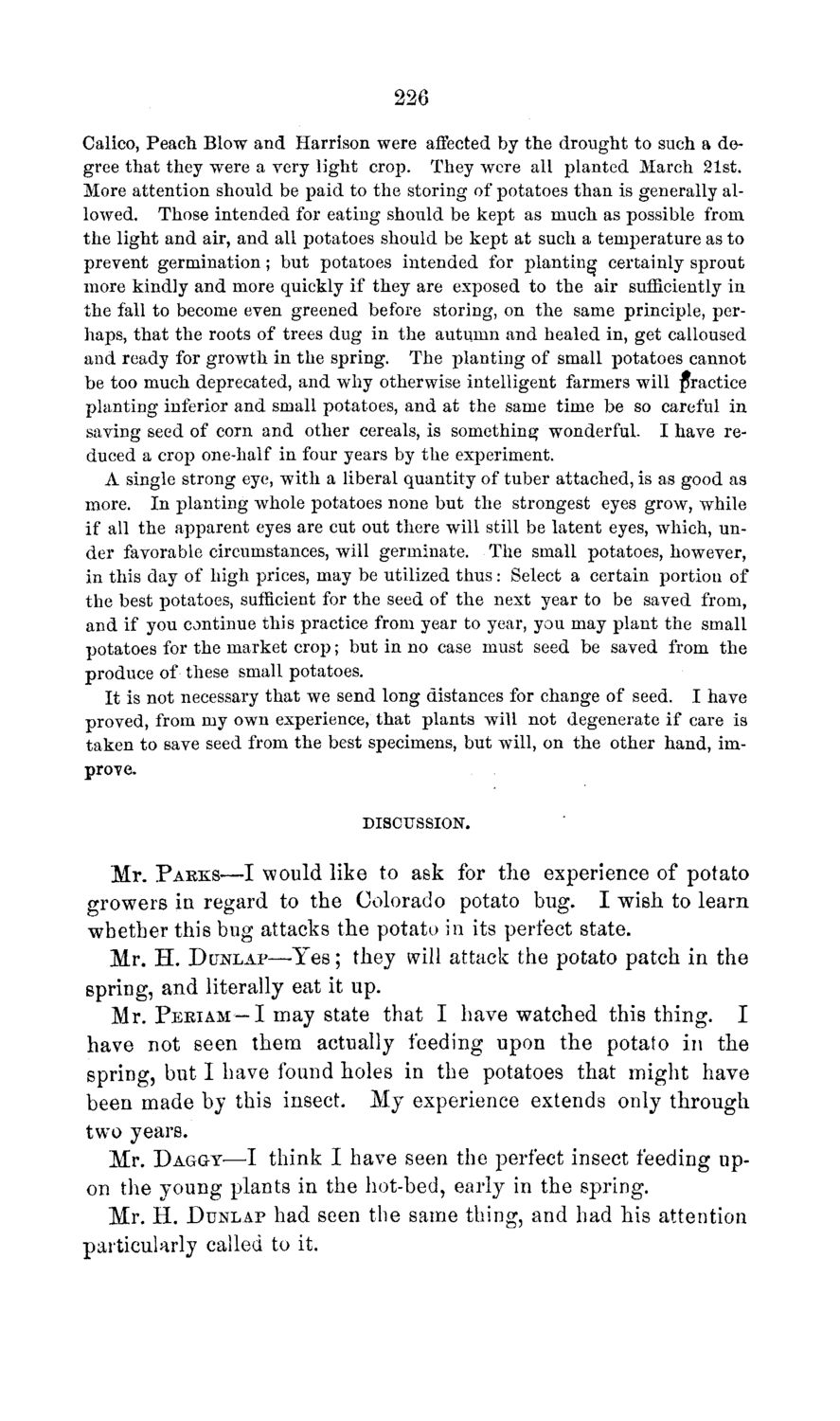| |
| |
Caption: Board of Trustees Minutes - 1869
This is a reduced-resolution page image for fast online browsing.

EXTRACTED TEXT FROM PAGE:
226 Calico, Peach Blow and Harrison were affected by the drought to such a degree that they were a very light crop. They were all planted March 21st. More attention should be paid to the storing of potatoes than is generally allowed. Those intended for eating should be kept as much as possible from the light and air, and all potatoes should be kept at such a temperature as to prevent germination; but potatoes intended for planting certainly sprout more kindly and more quickly if they are exposed to the air sufficiently in the fall to become even greened before storing, on the same principle, perhaps, that the roots of trees dug in the autumn and healed in, get calloused and ready for growth in the spring. The planting of small potatoes cannot be too much deprecated, and why otherwise intelligent farmers will practice planting inferior and small potatoes, and at the same time be so careful in saving seed of corn and other cereals, is something wonderful. I have reduced a crop one-half in four years by the experiment. A single strong eye, with a liberal quantity of tuber attached, is as good as more. In planting whole potatoes none but the strongest eyes grow, while if all the apparent eyes are cut out there will still be latent eyes, which, under favorable circumstances, will germinate. The small potatoes, however, in this day of high prices, may be utilized t h u s : Select a certain portion of the best potatoes, sufficient for the seed of the next year to be saved from, and if you continue this practice from year to year, you may plant the small potatoes for the market crop; but in no case must seed be saved from the produce of these small potatoes. I t is not necessary that we send long distances for change of seed. I have proved, from my own experience, that plants will not degenerate if care is taken to save seed from the best specimens, but will, on the other hand, improve, DISCUSSION. Mr. PARKS—I would like to ask for the experience of potato growers in regard to the Colorado potato bug. I wish to learn whether this bug attacks the potato in its perfect state. Mr. H. DUNLAP—Yes; they will attack the potato patch in the spring, and literally eat it up. Mr. PERIAM —I may state that I have watched this thing. I have not seen them actually feeding upon the potato in the spring, but I have found holes in the potatoes that might have been made by this insect. My experience extends only through two years. Mr. DAGGY—I think I have seen the perfect insect feeding upon the young plants in the hot-bed, early in the spring. Mr. H. DUNLAP had seen the same thing, and had his attention particularly called to it.
| |